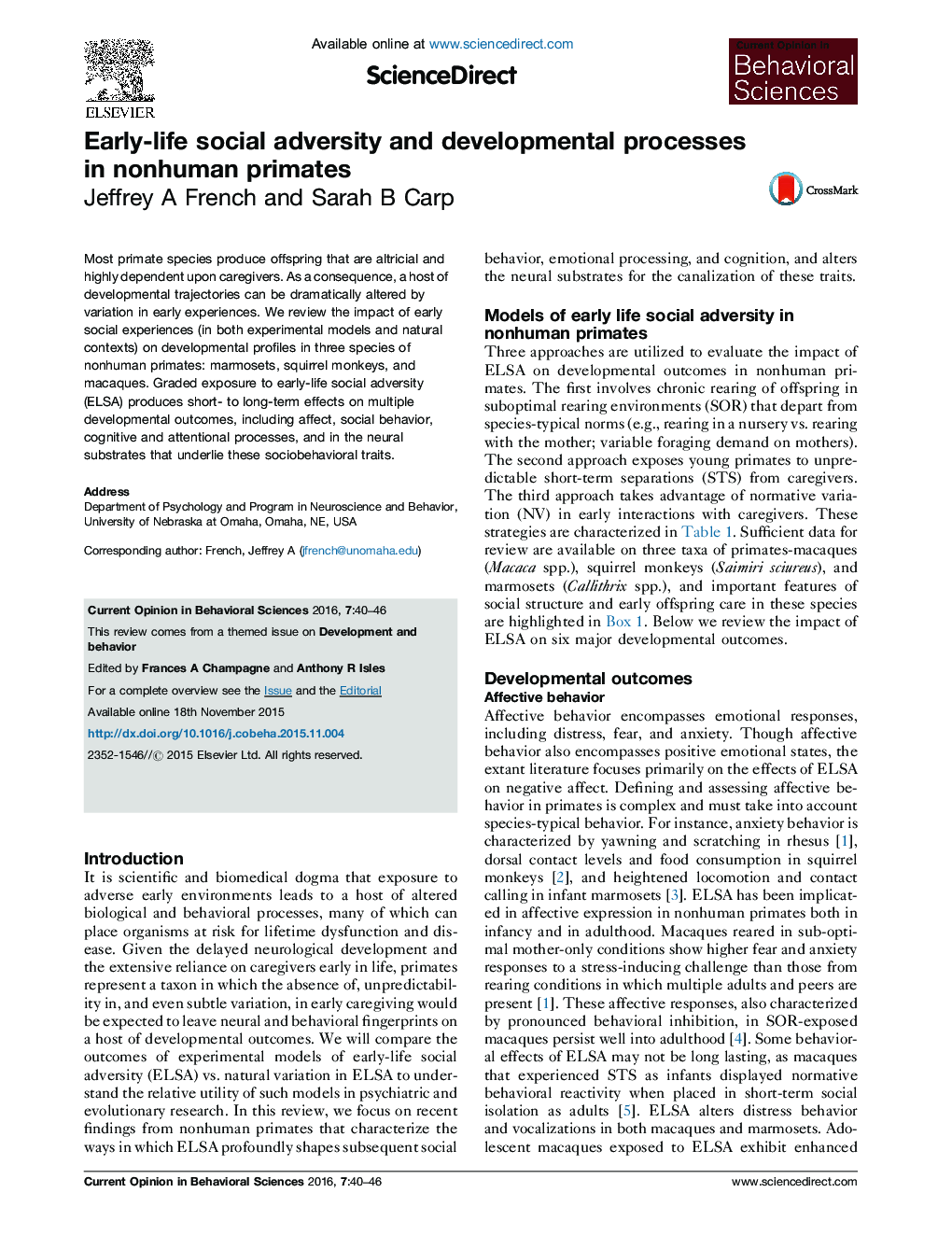| کد مقاله | کد نشریه | سال انتشار | مقاله انگلیسی | نسخه تمام متن |
|---|---|---|---|---|
| 6260646 | 1613083 | 2016 | 7 صفحه PDF | دانلود رایگان |
- Nonhuman primates are excellent models for the impact of social adversity on development.
- Early social adversity enhances anxiety and impairs social function.
- Multiple neurotransmitter systems are modulated as a consequence of early experience.
- Social adversity produces lifetime changes in brain structure and function.
Most primate species produce offspring that are altricial and highly dependent upon caregivers. As a consequence, a host of developmental trajectories can be dramatically altered by variation in early experiences. We review the impact of early social experiences (in both experimental models and natural contexts) on developmental profiles in three species of nonhuman primates: marmosets, squirrel monkeys, and macaques. Graded exposure to early-life social adversity (ELSA) produces short- to long-term effects on multiple developmental outcomes, including affect, social behavior, cognitive and attentional processes, and in the neural substrates that underlie these sociobehavioral traits.
Journal: Current Opinion in Behavioral Sciences - Volume 7, February 2016, Pages 40-46
